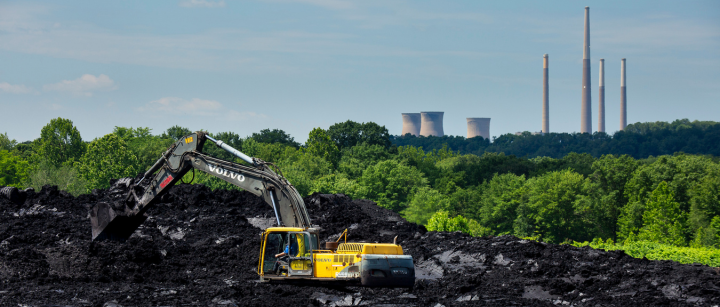In a recent address, President Donald Trump unveiled a series of executive orders aimed at revitalizing the coal industry in the United States. He attributed the decline of coal to environmental regulations, mistakenly claimed that coal plants are proliferating throughout Germany, and continued to describe coal as “clean.” These assertions, however, have been met with skepticism from energy experts who highlight the fundamental shifts towards more sustainable and economically viable energy sources.
Experts assert that the principal factor contributing to the decline in coal-fired power generation is not regulation, but rather the growth in alternative energy, particularly more affordable natural gas and renewable resources. In Germany, a few aging coal plants were briefly reactivated due to energy demands in 2022, but they were promptly shuttered again by 2024, with plans to eliminate coal-fired power by 2038. This transition reflects Germany’s commitment to modern energy solutions, which include significant investments in renewable energy technologies such as wind and solar power.
At the heart of Trump’s remarks was a nostalgic call to restore what he described as a pivotal industry that had been sidelined. He expressed optimism about the coal sector, insisting that his administration’s actions would alleviate burdens on American miners and consumers. Despite this, the data presents a different picture; coal’s share in U.S. electricity generation has significantly dwindled, accounting for just 16% of power production in 2023, down from higher figures a decade ago. Furthermore, the workforce associated with coal has decreased dramatically, from approximately 90,000 jobs in 2012 to around 40,000 in 2023.
While Trump’s proposals include reopening federal lands for coal leasing and easing restrictions on coal production, experts caution that this approach does not align with the reality of the energy market. The overwhelming consensus is that coal’s decline is primarily driven by its economic inefficiency compared to natural gas and renewables, rather than regulatory pressures. Many analysts underscore that as more coal plants are retired, advanced competitive alternatives are rising, marking a clear trend towards a cleaner energy future.
Furthermore, Trump’s characterization of coal as “clean” is contested by environmental authorities and health experts. Coal combustion is known to emit higher carbon emissions and hazardous pollutants than alternatives, posing public health risks. The call for “clean coal” often overlooks serious environmental impacts associated with coal mining and energy production.
In conclusion, as the energy landscape evolves, the focus is increasingly turning towards sustainable, efficient, and innovative energy solutions. The commitment to exploring alternative energy sources not only supports environmental goals but also positions countries like Germany as leaders in sustainable energy policy. The transition from coal furthers these nations’ aims for economic resilience and ecological responsibility.
#EnergyNews #MiddleEastNews

